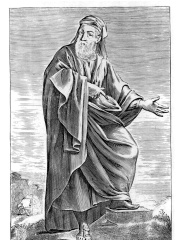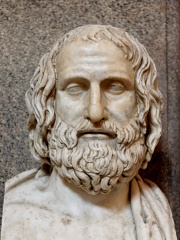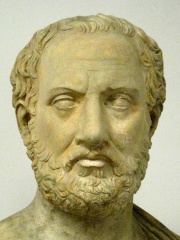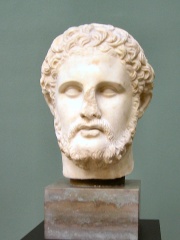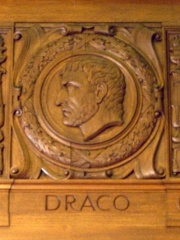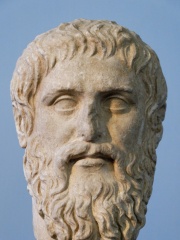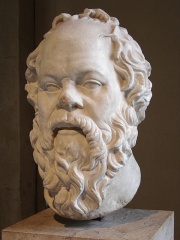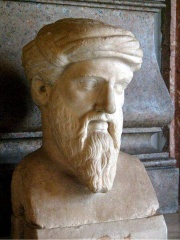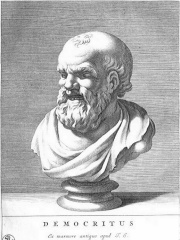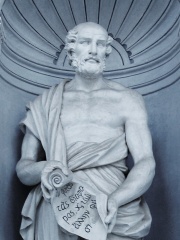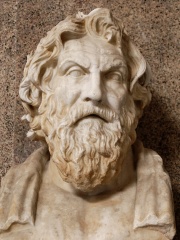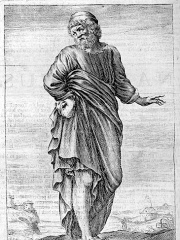Filosofo
Protagoras
486 BC - 420 BC
IT.WIKIPEDIA PAGE VIEWS (PV)

 Protagoras
Protagoras
La sua biografia è disponibile in 71 lingue su Wikipedia (in aumento rispetto a 70 nel 2024). Protagoras è il 47° filosofo più popolare (in calo dal 46° nel 2024), la 22ª biografia più popolare della Grecia (in aumento dal 23ª nel 2019) e il 8° filosofo più popolare della Grecia.
Memorability Metrics
Page views of Protagoras by language
Among Filosofos
Among filosofos, Protagoras ranks 47 out of 1,267. Before him are Rajneesh, Michel de Montaigne, Sun Tzu, Empedocles, Plutarch, and Anaximander. After him are David Hume, Ludwig Wittgenstein, Anaxagoras, John Amos Comenius, Swami Vivekananda, and Michel Foucault.
Most Popular Filosofos in Wikipedia
Go to all RankingsRajneesh
1931 - 1990
HPI: 83.75
Rank: 41
Michel de Montaigne
1533 - 1592
HPI: 83.66
Rank: 42
Sun Tzu
544 BC - 496 BC
HPI: 83.60
Rank: 43
Empedocles
490 BC - 430 BC
HPI: 83.60
Rank: 44
Plutarch
46 - 127
HPI: 83.51
Rank: 45
Anaximander
610 BC - 546 BC
HPI: 83.48
Rank: 46
Protagoras
486 BC - 420 BC
HPI: 83.37
Rank: 47
David Hume
1711 - 1776
HPI: 83.28
Rank: 48
Ludwig Wittgenstein
1889 - 1951
HPI: 83.27
Rank: 49
Anaxagoras
500 BC - 428 BC
HPI: 82.89
Rank: 50
John Amos Comenius
1592 - 1670
HPI: 82.84
Rank: 51
Swami Vivekananda
1863 - 1902
HPI: 82.73
Rank: 52
Michel Foucault
1926 - 1984
HPI: 82.59
Rank: 53
Contemporaries
Among people born in 486 BC, Protagoras ranks 1. Among people deceased in 420 BC, Protagoras ranks 1. After him are Callicrates, Archidamus II, and Oenopides.
Others Born in 486 BC
Go to all RankingsOthers Deceased in 420 BC
Go to all RankingsProtagoras
PHILOSOPHER
486 BC - 420 BC
HPI: 83.37
Rank: 1
Callicrates
ARCHITECT
470 BC - 420 BC
HPI: 71.98
Rank: 2
Archidamus II
POLITICIAN
450 BC - 420 BC
HPI: 67.78
Rank: 3
Oenopides
ASTRONOMER
490 BC - 420 BC
HPI: 59.84
Rank: 4
In Grecia
Among people born in Grecia, Protagoras ranks 22 out of NaN. Before him are Euripides (-480), Saint Stephen (1), Thucydides (-460), Aeschylus (-525), Bayezid II (1447), and Plutarch (46). After him are Philip II of Macedon (-382), Kösem Sultan (1590), Sappho (-630), Phidias (-490), Prince Philip, Duke of Edinburgh (1921), and Draco (-650).
Others born in Grecia
Go to all RankingsEuripides
WRITER
480 BC - 406 BC
HPI: 84.12
Rank: 16
Saint Stephen
RELIGIOUS FIGURE
1 - 36
HPI: 84.00
Rank: 17
Thucydides
HISTORIAN
460 BC - 397 BC
HPI: 83.71
Rank: 18
Aeschylus
WRITER
525 BC - 456 BC
HPI: 83.66
Rank: 19
Bayezid II
POLITICIAN
1447 - 1512
HPI: 83.64
Rank: 20
Plutarch
PHILOSOPHER
46 - 127
HPI: 83.51
Rank: 21
Protagoras
PHILOSOPHER
486 BC - 420 BC
HPI: 83.37
Rank: 22
Philip II of Macedon
POLITICIAN
382 BC - 336 BC
HPI: 83.15
Rank: 23
Kösem Sultan
POLITICIAN
1590 - 1651
HPI: 83.07
Rank: 24
Sappho
WRITER
630 BC - 570 BC
HPI: 83.03
Rank: 25
Phidias
SCULPTOR
490 BC - 430 BC
HPI: 82.85
Rank: 26
Prince Philip, Duke of Edinburgh
NOBLEMAN
1921 - 2021
HPI: 82.77
Rank: 27
Draco
PUBLIC WORKER
650 BC - 600 BC
HPI: 82.30
Rank: 28
Among Filosofos In Grecia
Among filosofos born in Grecia, Protagoras ranks 8. Before him are Plato (-427), Socrates (-470), Pythagoras (-570), Democritus (-460), Epicurus (-341), and Plutarch (46). After him are Gorgias (-483), Theophrastus (-371), Apollodorus of Athens (-180), Antisthenes (-445), Pyrrho (-365), and Isocrates (-436).
Plato
427 BC - 347 BC
HPI: 95.94
Rank: 2
Socrates
470 BC - 399 BC
HPI: 94.90
Rank: 3
Pythagoras
570 BC - 495 BC
HPI: 93.36
Rank: 4
Democritus
460 BC - 360 BC
HPI: 86.85
Rank: 5
Epicurus
341 BC - 269 BC
HPI: 86.65
Rank: 6
Plutarch
46 - 127
HPI: 83.51
Rank: 7
Protagoras
486 BC - 420 BC
HPI: 83.37
Rank: 8
Gorgias
483 BC - 375 BC
HPI: 80.90
Rank: 9
Theophrastus
371 BC - 287 BC
HPI: 80.19
Rank: 10
Apollodorus of Athens
180 BC - 110 BC
HPI: 78.45
Rank: 11
Antisthenes
445 BC - 365 BC
HPI: 78.34
Rank: 12
Pyrrho
365 BC - 275 BC
HPI: 76.97
Rank: 13
Isocrates
436 BC - 338 BC
HPI: 76.16
Rank: 14



